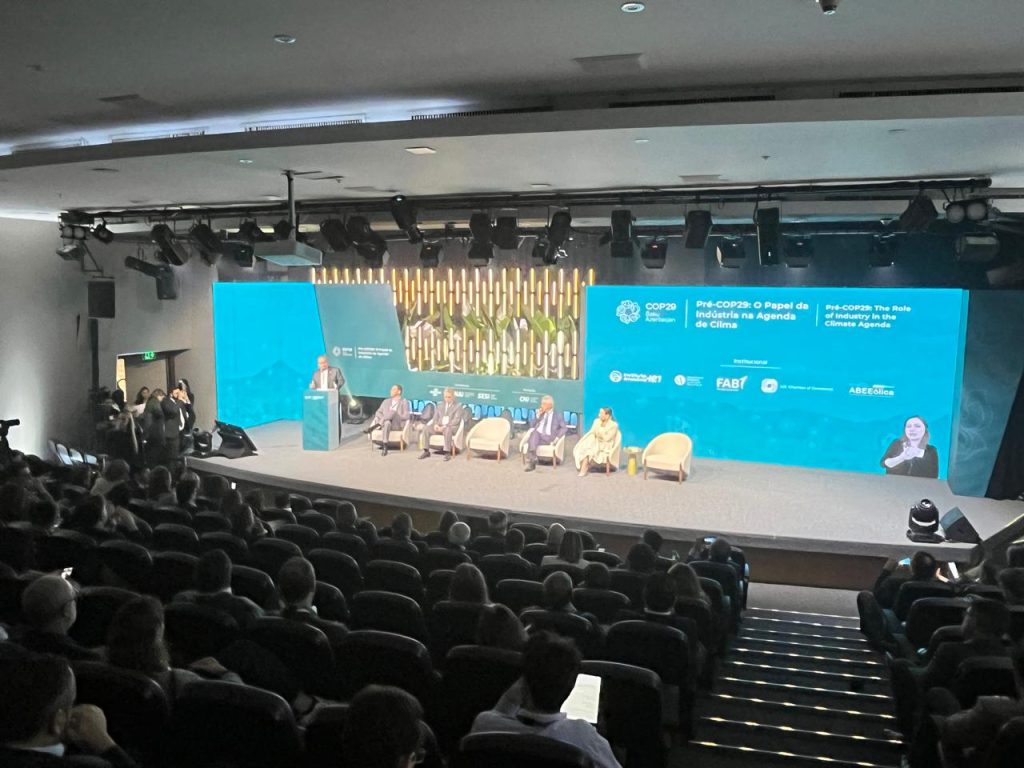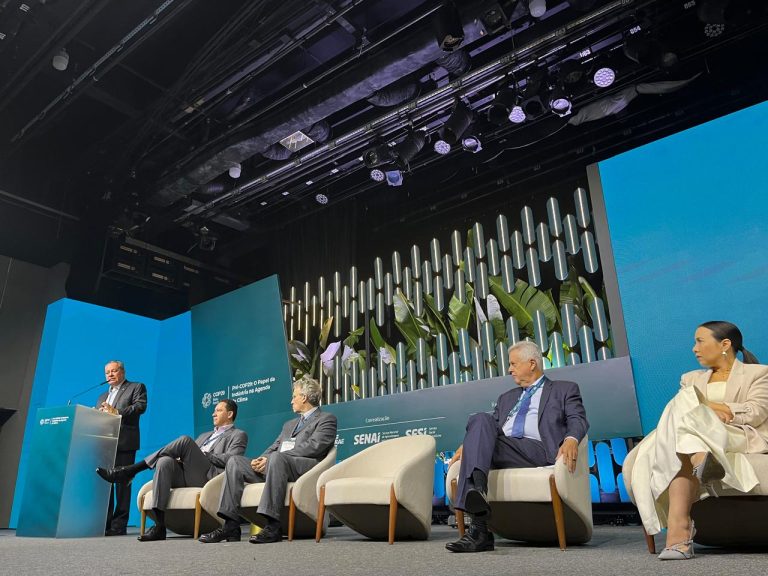São Paulo – Funding for measures to achieve climate goals is expected to intensify at the COP29 climate summit, scheduled for November 11-22 in Baku, Azerbaijan. At the seminar “Pre-COP29: The Role of Industry in the Climate Agenda,” organized by industry group CNI on Thursday (3) in São Paulo, the institution presented its agenda for the event and the role of the industry in the pursuit of zero greenhouse gas emissions. The event was supported by the Arab-Brazilian Chamber of Commerce (ABCC).
The president of the CNI, Ricardo Alban, advocated for concrete and sustainable climate financing; the creation of indicators to measure the results of energy transition programs; and the implementation of clear rules in the carbon market. He said the results to be achieved at COP29 are crucial for COP30, which will be held in Belém, Brazil, in 2025, to deliver outcomes for the planet in favor of the climate. “We need to be aware that the unequal must be treated unequally,” he said, referring to the fact that developed and developing countries have to be viewed and financed according to their realities.

The U.S. government’s special envoy for climate, Rick Duke, participated in the event from the United States and said COP29 provides the opportunity to advance the resolutions from COP28, which was held in Dubai, United Arab Emirates, in 2023, to achieve net-zero carbon emissions by 2050.
Both Duke and Alban said there is money available in the world to finance the energy transition, currently estimated at nearly USD 6 trillion. However, Duke emphasized that investment funds holding the capital for these investments need governments to demonstrate commitment to their goals, that projects be put into practice, and that there be infrastructure and regulations in place to ensure the energy transition.
Financing the energy transition is essential for each country to achieve its nationally determined contribution (NDC). Brazil’s current goal is to achieve net-zero emissions by 2050. An update to Brazil’s target is expected to be presented before COP29.
After COP29, it’s time for COP30 in Belém, Brazil
The Brazilian ambassador to Azerbaijan, Manuel Montenegro, said COP29 will be the largest event ever held in Azerbaijan, a country that relies on oil exploration and has Italy as its largest trading partner, with oil and gas exports totaling USD 15 billion in 2023. Oil derivatives, he said, still account for 44% of the exports from Azerbaijan, which seeks to diversify its economic framework and has invested in sustainable projects.
Last year, said Montenegro, Azerbaijan imported USD 200 million worth of products from Brazil, exemplifying that the trade relationship between the two countries could intensify in the coming years. “Trade exchange could grow with mutual understanding,” he said, recalling that the two countries and the UAE are part of the Troika, a group formed last year by the three countries to strengthen international cooperation to limit global warming to 1.5°C.
The president of the Federation of Industries of the State of Pará (FIEPA), Alex Carvalho, said COP is an “opportunity to rethink the development model” and commented that much of what is consumed now in Brazil is not locally sourced. They are imported products that often come from places that are not committed to preservation and arrive in the country under more competitive conditions than Brazilian products, he exemplified.
The director of institutional relations at CNI, Roberto Muniz, presented the results of the survey “Public Opinion & Sustainability,” which shows, among other data, that 92% of Brazilians are concerned about saving water, seven out of ten Brazilians separate recyclable waste, and 49% replace their cars with non-polluting transportation. An additional 24% are willing to pay a little more for sustainable products.
The event also featured the acting head of the Brazilian Foreign Ministry’s Representation Office in São Paulo, Alfredo José Cavalcanti Jordão de Camargo; the deputy manager of the Innovation Unit of the Brazilian Support Service for Micro and Small Enterprises (Sebrae), Anne Tonet; the president of the National Confederation of Insurers (CNseg), Dyogo Oliveira; the Secretary of Green Economy, Decarbonization, and Bioindustry of Brazil’s Ministry of Development, Industry, Commerce, and Services, Rodrigo Rollemberg; and federal deputy Arnaldo Jardim. Throughout the day, the event included panels on the green economy and energy transition in the industry.
COP hosts UAE, Azerbaijan, Brazil announce climate ‘troika’
Arab-Brazilian Chamber proposes cooperation with entities for COP30
Translated by Guilherme Miranda




